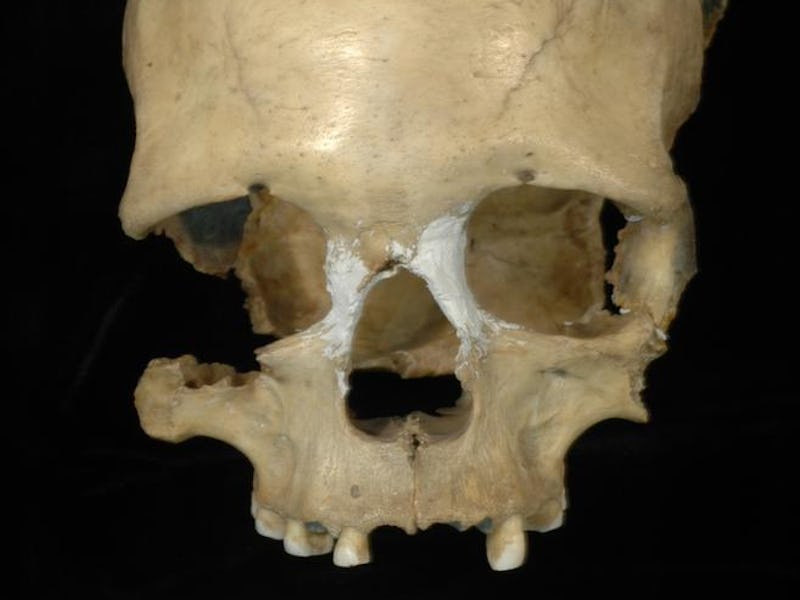Europeans Returned to Africa During the Ice Age
DNA evidence from a 35,000-year-old skull suggests early Europeans returned to Africa after leaving the nest.

The mass exodus of Homo sapiens from Africa was supposed to be a one-way trip. We’ve long thought that some early humans left the cradle of life some 100,000 and 50,000 years ago, settling in what we now call Europe. But new DNA evidence, revealed today in a paper in Scientific Reports, suggests that a group of those early Europeans got homesick, heading back to Africa during the last Ice Age.
The DNA analysis from a 35,000-year-old female skull, found in a Romanian cave in 1952, offers genetic proof that humans from southeastern Europe backtracked through western Asian home to northern Africa some 45,000 years ago.
The team of European scientists behind the study, led by researchers from the University of the Basque Country, looked specifically at the mitochondria — the cell’s powerhouses — in the skull’s fossilized teeth; because the DNA in these cellular factories is only passed down maternally, they allow scientists to trace an individual’s genetic heritage in a straight line.
DNA from a skull found in the Pestera Muierii cave bears a resemblance to the genomes of modern-day humans in West Africa, suggesting that early European populations circled back home.
The Romanian woman’s mitochondrial DNA revealed something strange: Her “haplotype” — the pattern of mutations that accumulates over time — has a distinctly European origin, but it also bears a strong resemblance to the haplotype shared by modern humans living in Northwest Africa today, carrying two of the genome’s most characteristic mutations.
It led the scientists to conclude that Ice Age Europeans carrying this haplotype doubled back toward Africa, where they resettled permanently. Modern-day Africans still share this haplotype, but their genes show a multitude of newer mutations that developed after their ancestors returned home.
A 35,000-year-old female skull.
Our species’ history is far from linear. Homo sapiens were long thought to have emerged in Africa 200,000 years ago, but as new fossils are unearthed, our early origins and dispersal over the globe still remain a mystery; recent fossil finds have shown that modern-day humans share genetic material with both Homo sapiens and Neanderthals — our closest relatives — which early Europeans displaced in the Middle East some 45,000 years ago.